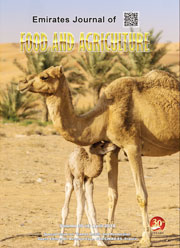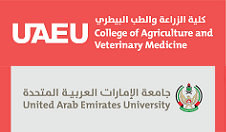Phenotypic and genotypic characterization of antibiotic resistance of Listeria monocytogenes isolated from raw milk samples collected from Polonnaruwa, Sri Lanka
DOI:
https://doi.org/10.9755/ejfa.2022.v34.i1.2809Abstract
Listeria monocytogenes is a food-borne pathogen that can cause severe invasive infection called ‘listerosis’ in humans. Development of
antibiotic resistance is a major setback in the management of conditions caused by Listeria in both human and veterinary medicine. In this
study, antibiotic resistance of fifty L. monocytogenes strains isolated from raw milk samples collected from farms in Polonnaruwa district,
Sri Lanka was determined for four commonly used antibiotics; penicillin, ampicillin, streptomycin and tetracycline. The strains were also
tested for the presence of selected antibiotic resistant genes (penA, ampC, strA, strB, tetA and tetB). L monocytogenes isolates showed
resistance to ampicillin (60%), penicillin (40%) streptomycin (16%) and tetracycline (8%) in diffusion assays. Phenotypic multidrug
resistance was exhibited by twenty isolates. The tetracycline resistant gene (tetA) was detected in seven isolates, while tetB was not
detected in any. Presence of streptomycin resistant genes (strA or strB) was confirmed in seven isolates. Ampicillin (ampC) and penicillin
(penA) resistant genes were not detected in any of the tested isolates. Except from the samples collected from Sungavila area, isolates
from other sampling areas showed resistance to at least one of the antibiotics tested, suggesting that raw milk samples are prone to be
contaminated with L. monocytogenes strains with different antibiotic resistant profiles. Therefore, necessary hygienic precautions are
recommended to avoid any potential public health threats and to safeguard the health of raw milk consumers.










 .
. 